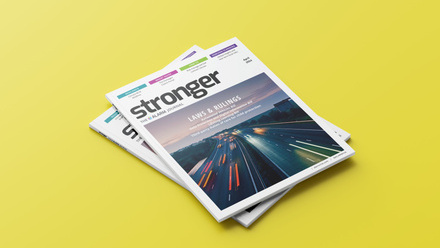If we scan the horizon we know that social, economic, political and environmental factors all play into the claims of tomorrow. The cost of living crisis continues to bite and global events impact on domestic politics.
Highways
Highways claims will continue to be a significant part of the claims profile. Many councils have fragile networks caused primarily by a lack of resource. For some councils this is at crisis point; particularly in the context of the extreme weather events which are tearing apart many highways with large scale damage.
Maintaining the inspection systems is vital, although it is a challenge for some councils. We hear of costs savings such as reducing the numbers of highways inspectors or increasing the interval of inspections. Even if repairs are identified there are often difficulties getting the repairs done, let alone within a reasonable timeframe.
The increased use of electric vehicles adds another dimension to the challenges of maintaining the integrity of the highways. Gulley channels for charging cables are a good example of councils seeking sustainable solutions. A pertinent question to ask is: does the increased risk that arises feed into the risk based analysis when the inspection frequency is considered?
Fraud
The socio-economic impact of the cost of living crisis means that fraud is the fastest growing criminal offence in the UK, and the impact on claims is obvious.
The Economic Crime and Transparency Act 2023 is about to receive Royal Assent. The Act focuses on economic crime and corporate transparency; meaning there is the potential for a corporate criminal offence for failing to prevent fraud unless the right controls are in place to mitigate this. Again, another area of risk for councils and another layer in the procurement process.
Social care
The social care rollercoaster continues with the Supreme Court having recently heard YXA and HXA; specifically looking at when an assumption of responsibility can arise pre-care order and considering other issues such as implications of Section 20 accommodation. Firms are entering and leaving this market in quick succession while they try to grapple with the law.
It is not surprising that some of the claimant specialist social care firms are shifting their sights to the Human Rights Act (HRA). It seems that HRA claims are coming to the fore during the coronial process when inquests are opened. These are particularly sensitive for all those involved, complex from a legal perspective, and potentially reputationally damaging.
Mental health and wellbeing
Mental health and wellbeing is a real area of focus for all employers, particularly post-pandemic with the decreasing and tangible reduction in mental resilience. Managing this is challenging, particularly when many still work from home for much of the working week. This causes challenges when it comes to proactively manage workloads, or identifying what exactly impending harm to mental health looks like virtually.
The role of media has shone a light on further issues which impact on mental health such as neurodiversity and unacceptable behaviours in the workplace. We have seen media coverage identifying clear safeguarding issues concerning celebrities and politicians alike. If we combine that with the post-COVID-19 lack of mental resilience, stretched council resources and the cost of living crisis, it has to be an area of increased risk.
Politics and government
We must not forget the impact of the political landscape. Legislation will be inevitably stalled or speeded up, according to what is politically expedient; some of it may not happen at all.
The latest by-elections and polling suggests a realistic prospect of a Labour government, and many changes in local leadership. This will undoubtedly shift the statutory focus and provide the trade unions with a stronger voice. They may lobby for change to make access for justice easier. They may also want to challenge the fixed recoverable cost regime given the impact it has on the claimant legal market.
COVID-19 Inquiry
And lastly, we must not forget the impact of the COVID-19 Public Inquiry and the inevitable focus this will have on many aspects of council services. We know test litigation is currently ongoing. If the local government voice is restricted (as it has been to date) this could lead to a call for local inquiries, which are very costly. There may be an increase in potential claims.
We have to recognise that claims are becoming wider and increasingly complex. They can often sit outside the traditional tort space. Sink holes on highways are a good example, involving regulatory, environmental, and commercial expertise. These added complexities add costs.





